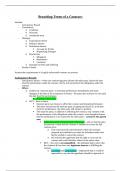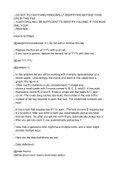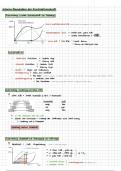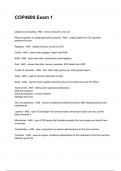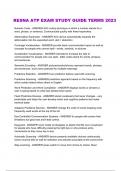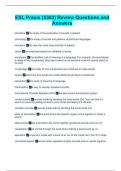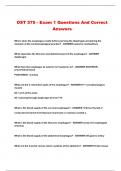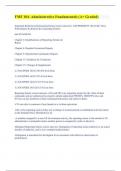Summary
Contract Law - Breaching Terms of a Contract Summary
- Course
- Institution
Comprehensive summary/exam notes on the rules surrounding breaching terms of a contract in Contract Law. This document covers anticipatory breach, the possibility of termination following breach of a condition, warranty or innominate term, damages following breach (expectation interest, reliance in...
[Show more]
